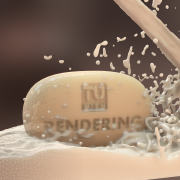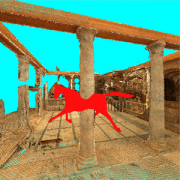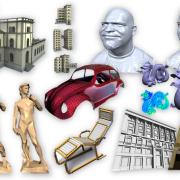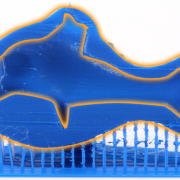The project will create a leading European-wide doctoral Collegium for research in Advanced Visual and Geometric Computing for 3D Capture, Display, and Fabrication (EVOCATION). The Collegium will train the next generation of creative, entrepreneurial and innovative experts who will be equipped with the necessary skills and competences to face current and future major challenges in scalable and high-fidelity geometry and material acquisition, extraction of structure and semantic information, processing, visualization, 3D display and 3D fabrication in professional and consumer applications. In the future, the ESRs will lead research and development of new visual and geometric computing methods in the widest variety of applications, ranging from industrial design to humanities, from medical training to urban assessment, and from creative industries to education methodologies. The EVOCATION network of public and private entities will be naturally multidisciplinary and multi-institutional and will: (a) promote, through domain-specific challenges, the culture of open science and multidisciplinary research applied to concrete problems of the real world, in strict cooperation with end users in engineering, science and humanities; (b) advance the state-of- the-art in geometry and material acquisition, geometry processing and semantic feature extraction, interactive visualization, computational fabrication, and high-bandwidth/3D display systems; (c) bridge complementary approaches for cost-effective data digitization, visualization, fabrication, and display through the integration of different methodologies in the 3D capture, processing and fabrication pipeline; (d) demonstrate the feasibility and efficiency of scalable cost-effective end-to-end techniques to virtually and physically capture and create objects with complex shape and appearance; (e) increase awareness of the benefits of advanced visual/geometric computing technology in both professional and consumer domains.
Funding
- Horizon 2020 Marie Sklodowska-Curie Actions (MSCA) ITN 813170
Research Areas
- In this area, we concentrate on algorithms that synthesize images to depict 3D models or scenes, often by simulating or approximating the physics of light.
- Uses concepts from applied mathematics and computer science to design efficient algorithms for the reconstruction, analysis, manipulation, simulation and transmission of complex 3D models. Example applications are collision detection, reconstruction, compression, occlusion-aware surface handling and improved sampling conditions.
- In this area, we focus on researching methods and algorithms that facilitate creation, representation, analysis and processing of 3D models.
- The advent of consumer-grade 3D printing has recently sparked interest in fabrication-aware shape design and optimization. We use techniques from computer graphics and engineering to develop new computational tools to facilitate the design process of physical artifacts.
Publications
9 Publications found:
Download list as Bibtex, HTML (Advanced, Expert), JSON (with referenced objects), CSV, Permalink
| Image | Bib Reference | Publication Type |
|---|---|---|
| 2024 | ||
Joao Afonso Cardoso Approaching Under-Explored Image-Space Problems with Optimization Supervisor: Michael Wimmer  Duration: April 2019 — 19. December 2024 [  thesis] thesis] |
PhD-Thesis | |
 |
Joao Afonso Cardoso , Francesco Banterle, Paolo Cignoni, Michael Wimmer , Francesco Banterle, Paolo Cignoni, Michael Wimmer Re:Draw - Context Aware Translation as a Controllable Method for Artistic Production In Proceedings of the Thirty-Third International Joint Conference on Artificial Intelligence (IJCAI-24), pages 7609-7617. August 2024. [  paper] paper] |
Conference Paper |
| 2022 | ||
 |
Joao Afonso Cardoso , Bernhard Kerbl , Bernhard Kerbl , Lei Yang, Yury Uralsky, Michael Wimmer , Lei Yang, Yury Uralsky, Michael Wimmer Training and Predicting Visual Error for Real-Time Applications Proceedings of the ACM on Computer Graphics and Interactive Techniques, 5(1):1-17, May 2022. [  paper] [Paper Website] paper] [Paper Website] |
Journal Paper with Conference Talk |
 |
Adam Celarek, Pedro Hermosilla-Casajus , Bernhard Kerbl , Bernhard Kerbl , Timo Ropinski, Michael Wimmer , Timo Ropinski, Michael Wimmer Gaussian Mixture Convolution Networks In The Tenth International Conference on Learning Representations (ICLR 2022), pages 1-23. April 2022. [  paper] [Code on github] paper] [Code on github] |
Conference Paper |
 |
Simon Maximilian Fraiss Construction and Visualization of Gaussian Mixture Models from Point Clouds for 3D Object Representation [  Master thesis] [ Master thesis] [ poster] poster] |
Master Thesis |
| 2021 | ||
 |
Joao Afonso Cardoso , Nuno Goncalves, Michael Wimmer , Nuno Goncalves, Michael Wimmer Cost Volume Refinement for Depth Prediction In Proceedings of the 25th International Conference on Pattern Recognition, pages 354-361. January 2021. [  amended-paper] amended-paper] |
Conference Paper |
| 2020 | ||
 |
Dominik Hanko Higher Hand-Drawn Detail Quality using Convolutional Assistant |
Bachelor Thesis |
| 2019 | ||
 |
Manuel Wieser Classification of Production Ready 2D Animation using Contour and Distance Fields |
Bachelor Thesis |
 |
Adam Celarek, Wenzel Jakob, Michael Wimmer , Jaakko Lehtinen , Jaakko LehtinenQuantifying the Error of Light Transport Algorithms Computer Graphics Forum, 38(4):111-121, July 2019. [  paper_preprint] [Git repository] paper_preprint] [Git repository] |
Journal Paper with Conference Talk |




